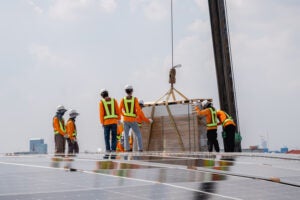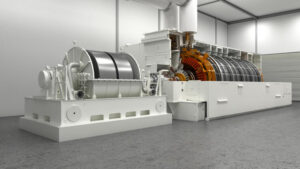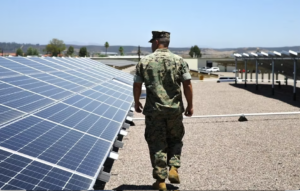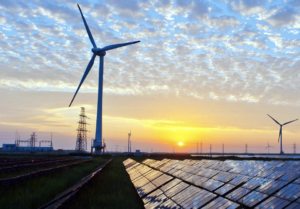In This Issue
-
Trends
Out of Sync: The Infrastructure Misalignment Undermining the U.S. Grid
U.S. power infrastructure—the intricate physical fabric that laces together generation, transmission, and distribution—is under intensifying strain. Outdated and overextended, it must now absorb relentless growth from electrification and data centers or risk escalating reliability threats, surging costs, and a weakened global competitive edge. POWER examines the dysfunction and what it will actually take to future-proof […]
-
Legal & Regulatory
Decarbonization Whiplash Prompts a Power Sector Recalibration
What happens when a political U-turn suddenly upends years of decarbonization strategy? As the U.S. House of Representatives moves to dismantle key clean energy tax credits, POWER examines how utilities and developers are rethinking timelines, technologies, and financing, while racing to keep the energy transition on track. On May 22, 2025, the U.S. House of […]
-
Trends
The Great Shift: Navigating the Global Energy Transition
As the world grapples with the urgent need to combat climate change, the transition from fossil fuels to renewable energy sources is accelerating, driven by technological advancements and governmental directives. This global shift promises not only to reduce greenhouse gas emissions, but also to create a more sustainable and resilient energy future. The world stands […]
-
T&D
How Decreasing Inertia Is Affecting Power Grids and What to Do About It
People in the power industry understand inertia and its importance to grid stability. As large thermal power plants and other inertia-providing units are replaced with renewable resources that provide no inertia, grid stability is at risk. Cost-effective solutions are available today, however, to maintain and even enhance grid operations. Concerning power grid operation, inertia refers […]
-
Distributed Energy
Microgrids: Decentralized Power That’s Central to the Energy Transition
Resilience, sustainability, cost savings, and more are behind the increasing adoption of microgrids, as a variety of industries and enterprises seek greater control of their energy supply.
-
Trends
IRA Incentives Fuel U.S. Solar Manufacturing Surge
The U.S. solar manufacturing landscape has undergone a remarkable transformation since the passage of the Inflation Reduction Act (IRA) in 2022. Through targeted domestic content incentives, the federal government has successfully ignited a manufacturing renaissance, boosting capacity nearly five-fold and creating thousands of jobs across the country. Catalyzing Growth Through Strategic Incentives The centerpiece of […]
-
Commentary
The Risk of Political Rebranding in the Clean Energy Industry
The U.S. solar industry has increasingly begun to rebrand itself as “MAGA-friendly,” emphasizing cost savings, energy independence, and job creation over climate concerns. This shift marks a departure from its traditionally left-leaning roots, as companies attempt to appeal to conservative consumers and policymakers. Some solar companies have changed their messaging to align with Trump-era rhetoric, […]
-
Renewables
Utilities, Grid Operators Grapple with Adding Renewable Energy
Power generators and transmission system engineers have to rethink their planning strategies, and must continue to develop tools to allow more solar, wind, and other forms of renewable energy to populate the power grid. Integrating renewable energy resources such as solar and wind into the electric power grid involves addressing challenges, starting with the intermittent […]









